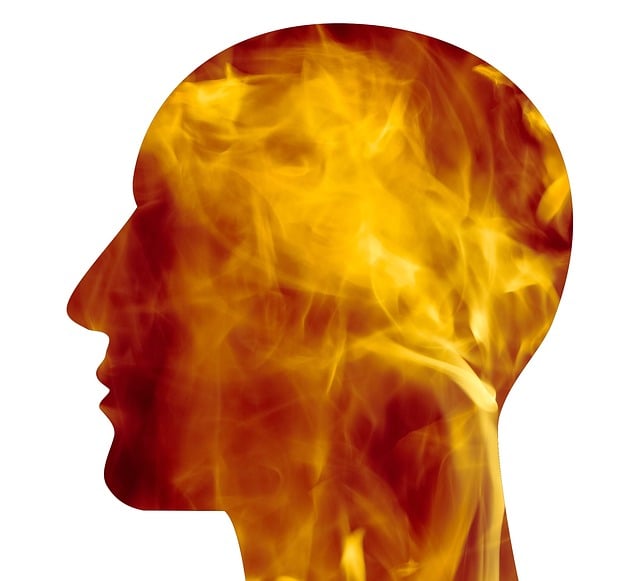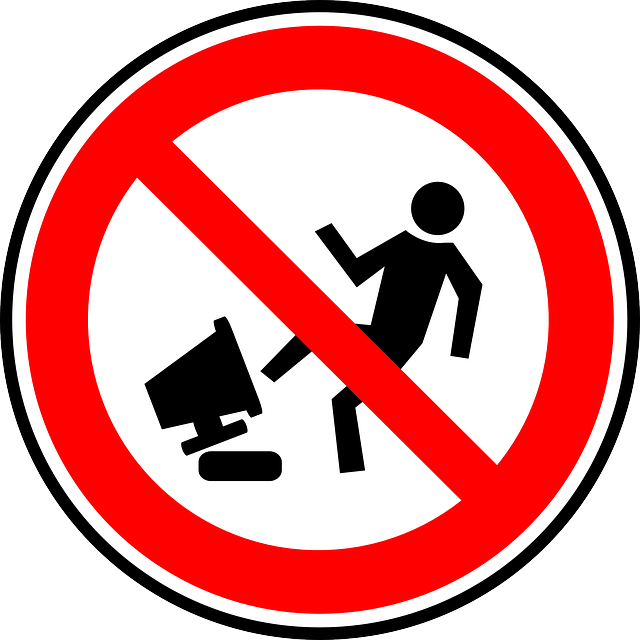Anger control therapy is a comprehensive approach to managing intense anger by addressing triggers, emotions, and thought patterns. It leverages psychoeducation to raise awareness, cognitive restructuring for healthier thinking, relaxation techniques for calmness, mindfulness for early intervention, and practical strategies for adaptive responses. Through these methods, individuals gain better emotional regulation, improved well-being, and enhanced relationships. Support systems, including therapy frameworks, support groups, and professionals, offer additional guidance and resources for long-term anger control.
Anger is a powerful emotion that, if left unmanaged, can lead to destructive behaviors. Psychoeducation plays a pivotal role in anger control therapy by empowering individuals to understand and regulate their feelings. This article delves into various aspects of managing anger, including recognizing triggers, challenging negative thoughts, relaxation techniques, mindfulness practices, behavioral strategies, and building healthy coping mechanisms. By employing these tools, individuals can effectively navigate and control their anger, fostering healthier relationships and improved overall well-being.
Understanding Anger: Recognizing Triggers and Emotions

Understanding Anger involves recognizing triggers and associated emotions, which are fundamental aspects of anger control therapy. Anger is a natural emotion that serves as a signal, alerting individuals to potential threats or frustrations. However, when left unmanaged, it can escalate into aggressive behaviors and detrimental mental health outcomes. By identifying triggers, individuals can begin to recognize the early signs of anger and take proactive steps to manage their response.
Emotional awareness is crucial in this process. Recognizing feelings of frustration, annoyance, or disappointment as they arise allows for a more controlled reaction. Psychoeducation teaches individuals to label and understand these emotions, enabling them to employ coping strategies such as deep breathing, mindfulness exercises, or seeking support from a trusted friend or professional.
The Role of Psychoeducation in Anger Control Therapy

Psychoeducation plays a pivotal role in anger control therapy, offering individuals valuable insights and strategies to manage their emotions effectively. Through educational sessions, clients gain a deeper understanding of anger—its causes, triggers, and physiological effects. This knowledge empowers them to recognize when anger is rising and to employ coping mechanisms before it escalates.
In the context of anger control therapy, psychoeducation fosters self-awareness, enabling individuals to challenge unhelpful thought patterns and behaviors associated with their anger. It provides a framework for interpreting and responding to frustrating situations, teaching alternative ways of thinking and acting that can significantly reduce angry outbursts.
Cognitive Restructuring: Challenging Negative Thoughts

Cognitive Restructuring is a powerful tool within anger control therapy, focusing on identifying and challenging negative thought patterns that contribute to intense anger. When individuals experience anger, their thoughts often become distorted and biased, leading to heightened emotional responses. This technique encourages patients to examine these cognitive processes and replace irrational or unhelpful beliefs with more balanced and realistic ones.
By challenging negative thoughts, individuals can gain a healthier perspective on situations that provoke anger. For instance, instead of thinking, “Everything is always going wrong,” they might reframe it as, “Some things are beyond my control, but I can focus on what I can change.” This cognitive restructuring promotes a more adaptive response to anger-provoking stimuli, enabling individuals to manage their emotions effectively and prevent impulsive reactions.
Relaxation Techniques for Calming the Mind and Body

Anger control therapy often incorporates relaxation techniques as a key component in managing intense emotions. These methods aim to calm both the mind and body, helping individuals to respond more appropriately when faced with anger-triggering situations. Deep breathing exercises are a fundamental tool; taking slow, controlled breaths activates the parasympathetic nervous system, promoting relaxation and reducing stress levels.
Other effective techniques include progressive muscle relaxation, where one systematically tenses and then releases different muscle groups, and mindfulness meditation, which encourages individuals to focus on the present moment, observe their thoughts without judgment, and let go of negative emotions. These practices empower people to gain better control over their anger, fostering a sense of calm and composure in challenging situations.
Mindfulness Practices for Improving Emotional Awareness

Mindfulness practices are integral to psychoeducation for managing anger, as they significantly enhance emotional awareness. By encouraging individuals to focus on the present moment and observe their thoughts and feelings without judgment, mindfulness helps to disrupt automatic reactions to anger-provoking stimuli. Through techniques like meditation, deep breathing exercises, and body scans, individuals learn to recognize early signs of anger, enabling them to implement effective coping strategies before escalating.
These practices foster a deeper understanding of the connection between thoughts, emotions, and behaviors, which is crucial for anger control therapy. By cultivating non-reactivity and emotional regulation skills, individuals can navigate challenging situations with greater calmness and clarity, leading to improved overall well-being and more constructive outcomes in relationships and daily life.
Behavioral Strategies for Anger Management

Anger management goes beyond emotional regulation; it also involves practical, behavioral strategies learned through anger control therapy. These techniques help individuals respond to triggers more adaptively instead of reacting impulsively. One effective approach is cognitive reframing, where people learn to challenge negative thoughts that fuel anger. For instance, recognizing and questioning self-critical or all-or-nothing thinking patterns can reduce the intensity of emotional responses.
Additionally, relaxation techniques like deep breathing exercises, progressive muscle relaxation, or mindfulness meditation are valuable tools taught in anger control therapy. These methods help individuals calm down and regain a sense of control when faced with anger-inducing situations. By combining cognitive reframing and relaxation techniques, people can develop healthier coping mechanisms, fostering better emotional regulation and improved overall well-being.
Building Healthy Coping Mechanisms and Problem-Solving Skills

Anger management involves more than just suppressing emotions; it’s about learning healthy coping mechanisms and problem-solving skills. Psychoeducation plays a crucial role here by teaching individuals to recognize triggers, understand their emotional responses, and develop effective strategies to manage anger. Through therapy sessions, patients can explore alternative ways to respond to stressful situations, such as deep breathing exercises, mindfulness techniques, or cognitive reframing.
Building these skills empowers individuals to navigate challenging situations with better control over their emotions. Anger control therapy equips people with the tools to problem-solve constructively, fostering a sense of calm and helping them make more rational decisions. By integrating these strategies into daily life, individuals can improve their overall well-being, strengthen relationships, and enhance their ability to handle anger in various contexts.
Support Systems and Resources for Ongoing Anger Control

After learning to identify and understand their anger, individuals seeking better management strategies can benefit from a range of support systems and resources. Anger control therapy offers a structured framework to help people develop healthier coping mechanisms. This can include cognitive-behavioral techniques to challenge negative thought patterns and replace them with more adaptive ones, as well as relaxation exercises to reduce the physical intensity of anger.
Support groups provide another valuable resource, offering a safe space for individuals to share their experiences, gain insights from peers, and learn from one another’s successes and setbacks. Online forums and digital platforms dedicated to anger management can also connect people with like-minded individuals, fostering a sense of community and shared understanding. Additionally, seeking help from mental health professionals, such as therapists or counselors, can provide personalized guidance and strategies for maintaining long-term anger control.
